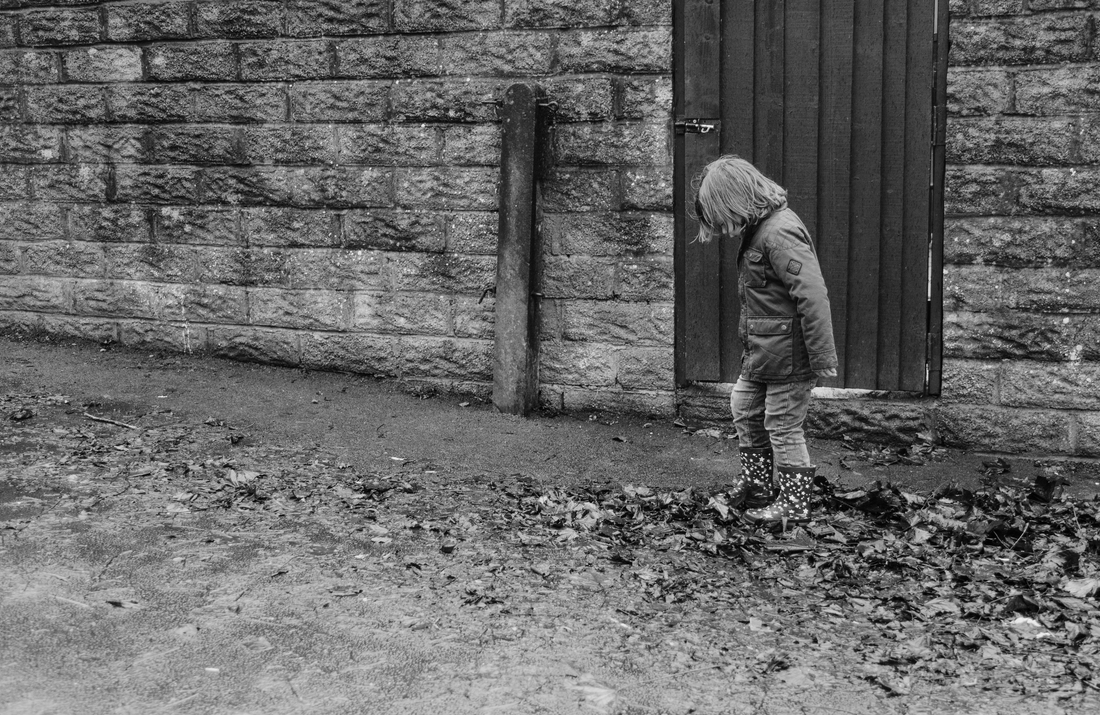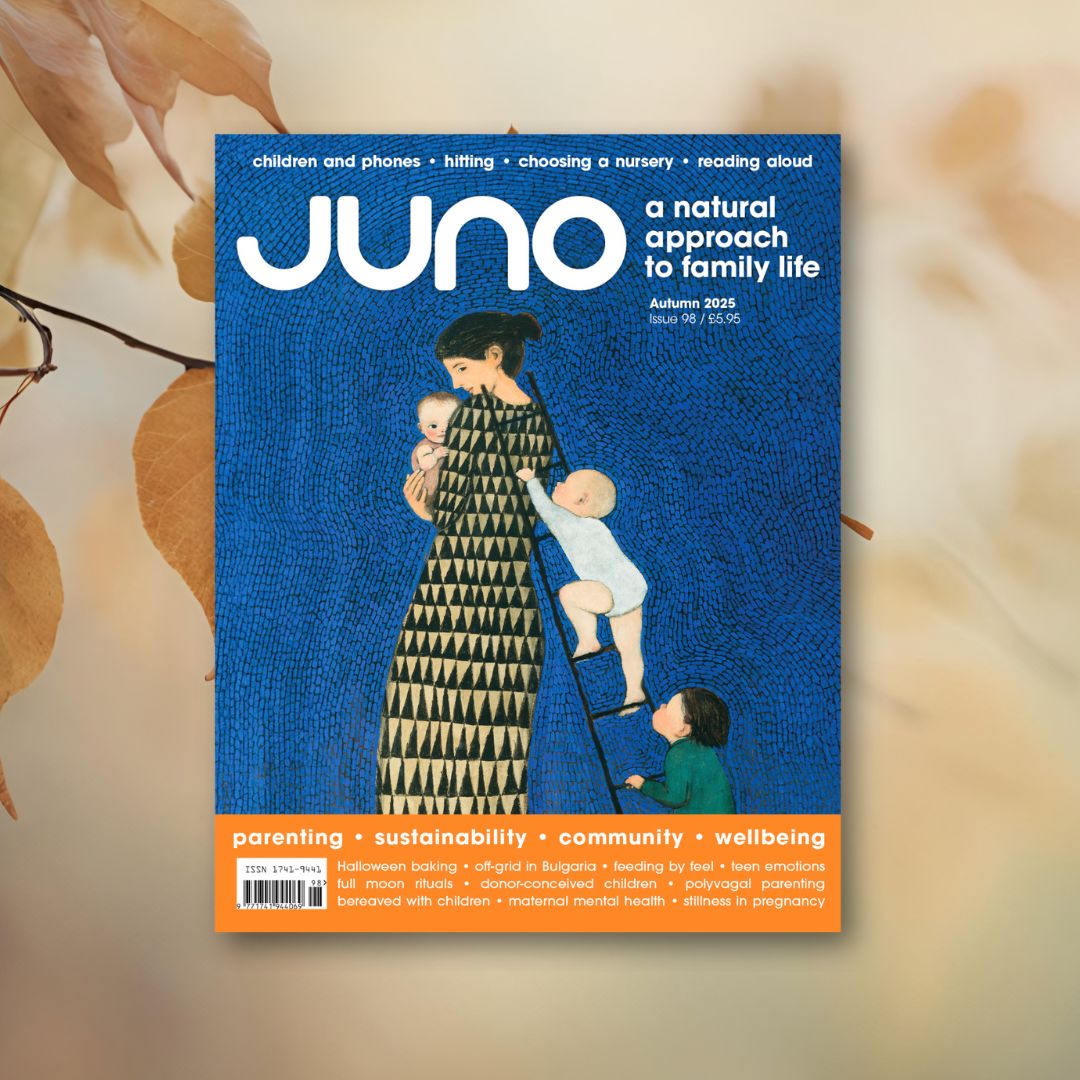It was September 2018. Llewelyn was 2 years 9 months and his journey into part-time education was about to begin. Like every parent, my husband and I were filled with excitement – so many adventures awaited him. But, deep down, I was anxious.
I remember the other children as we stood in line waiting for the nursery doors to open. Some were playing happily together in the playhouse – shouting, laughing and singing nursery rhymes – each one acutely aware of the others. How I longed for Llew to join them.
There was nothing glaringly wrong when Llew was born, but on numerous occasions, my gut told me something was ‘off’. To this day, I cannot pinpoint what it was, but I felt it.
As the weeks went by, it was not long before his differences became apparent to his teachers. He was the child who was always running out of the circle, exploring things other children weren’t into. He wasn’t interested in playing with other children or sitting quietly during reading time. He preferred to be outside, by the trees, plants, flowers, or in the dirt, as opposed to the actual playground. Running around, feeling the wind in his hair and the sun on his face. He was extremely tactile – a real sensory seeker – with love, innocence and kindness in abundance. He had a talent for balancing objects. He would spend hours tentatively hovering over them until a perfect equilibrium had been found. He loved to build, and his ability to recognise symmetry was advanced beyond his years. His cognitive ability astounded us at times, yet he could not speak.
Llew’s nursery was a Welsh-medium setting. We made the decision from the outset that we wanted to raise our children bilingually. Llew was never a big talker, and at 2 years old, he’d accumulated a handful of words. His health visitor assured us he was like every other third child: “Oh, he has two older sisters. They do all the talking for him. He’ll talk when he’s ready.”
Eventually, by the age of 3, Llew had lost his words altogether.
In the December, we decided to seek additional help, and so commenced our long journey to diagnosis. When I say journey, it was more of a battle. With local authority and health services severely overstretched and underfunded, access to resources was limited. The first step was to notify the local authority of Llew’s needs. It was vital that everything was in place to ensure a smooth transition for when Llew was to start mainstream nursery school the following year.
In the meantime, our GP referred Llew to both NHS speech and language and neurodevelopmental teams, but we were warned that the process would be a lengthy one. It could be months before an appointment with either department could be arranged. We felt helpless, and as the weeks and months passed, Llew went longer and longer without vital help and support.
So we sought the advice of a local charity, that in turn helped us obtain a private speech and language assessment. We anxiously forwarded the therapist’s report to the local authority, unsure if it would make any difference. We fought for oneto-one support for Llew and eventually we got it.

Llew started mainstream nursery in September 2019 and his differences were becoming more apparent as time went on. The school did everything it could, and despite the additional support, it was clear that without the specialist training available, his teachers were going to find it more and more difficult to assist with his learning. Llew often played alone in the quiet room; the set activities and tasks were becoming less and less appropriate. He was becoming increasingly excluded. It was heartbreaking to witness.
Llew was due to start in Reception the following September, which meant full days in school. We made the decision that when the time came, we would place him in a specialist resource base within an English-medium mainstream setting. Our priority was simply for Llew to be able to communicate, and as English was the main language at home, for us it was the obvious choice.
Various meetings with Llew’s ALNCo (additional learning needs co-ordinator) and educational psychologist followed, along with numerous trips to the speech and language therapist, audiology, and consultants. Then, finally, four weeks before Llew’s 5th birthday, he was given an official diagnosis: autism with speech and language delay.
I remember odd details of that day vividly: What the room looked like. What chair I was sitting in.
What I was doing when the doctor said, “There is no doubt in my mind that your child falls on the autism spectrum.” Llew was on the floor playing with trains. Innocent. And at almost 5 years old, acutely unaware of the lifelong label he had just been given.
I silently sobbed that night. Part relief and part fear for the future. I was unsure how long we would have to keep fighting for essential services, unsure if his therapy was right, unsure if he would ever live a normal life. The diagnosis forced me to change my expectations. I still have hopes and dreams for Llew. Perhaps they aren’t the same as they used to be, but they are still there. Ultimately, I long to hear his voice, to hear him say ‘Mummy’, or when I tell him I love him, to hear him say it back.
I realise there is a long road ahead and there are many challenges that autism can present. It is a vast, wide and colourful spectrum which, at times, makes it hard to know what choice to make, or to feel like you’re ever doing the right thing. There is a minefield of information available from organisations, charities and medical professionals. Yet some of the most practical and insightful things I have learned have come from other parents who are living with autism day in, day out. Their stories have inspired me when I’ve needed it, and also given me hope for what Llew can achieve.
I always try and focus on what Llew and his condition bring to our lives instead of what it takes away. He brings out the best in us and everyone around him. His love, sweetness and beautiful smile are infectious. Autism has undoubtedly enriched our lives, and there is one thing I am sure of: I will never stop fighting for our Llew.
____
Natasha Louca-Jones is a ‘recovering lawyer’ and co-founder of events company Invncbl Ltd alongside much-suffering husband Adam. Based in Cardiff, Natasha is mummy to Grace, Beatrice and Llewelyn.
Himalee Rupesinghe took the photographs for this feature. Himalee is a mum of four and shoots both lifestyle and documentary photography in South Wales. himaleerupesinghe.com
For more information, support and guidance on autism, or for details on charities and services local to you, call
01443 844 764 or visit theautismdirectory.com.
____
First published in issue 71 of JUNO. Accurate at the time this issue went to print.







